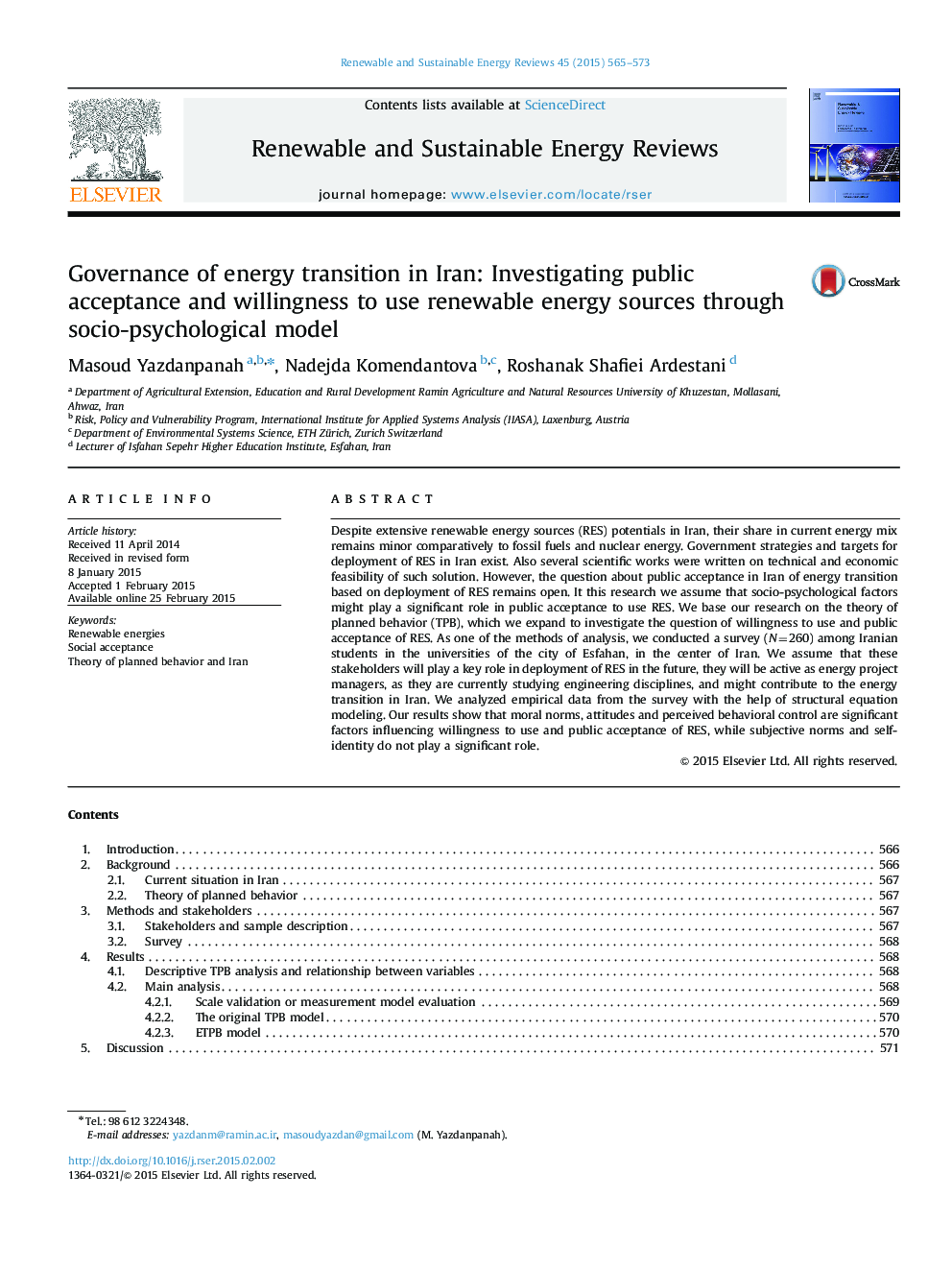| Article ID | Journal | Published Year | Pages | File Type |
|---|---|---|---|---|
| 1750068 | Renewable and Sustainable Energy Reviews | 2015 | 9 Pages |
Despite extensive renewable energy sources (RES) potentials in Iran, their share in current energy mix remains minor comparatively to fossil fuels and nuclear energy. Government strategies and targets for deployment of RES in Iran exist. Also several scientific works were written on technical and economic feasibility of such solution. However, the question about public acceptance in Iran of energy transition based on deployment of RES remains open. It this research we assume that socio-psychological factors might play a significant role in public acceptance to use RES. We base our research on the theory of planned behavior (TPB), which we expand to investigate the question of willingness to use and public acceptance of RES. As one of the methods of analysis, we conducted a survey (N=260) among Iranian students in the universities of the city of Esfahan, in the center of Iran. We assume that these stakeholders will play a key role in deployment of RES in the future, they will be active as energy project managers, as they are currently studying engineering disciplines, and might contribute to the energy transition in Iran. We analyzed empirical data from the survey with the help of structural equation modeling. Our results show that moral norms, attitudes and perceived behavioral control are significant factors influencing willingness to use and public acceptance of RES, while subjective norms and self-identity do not play a significant role.
